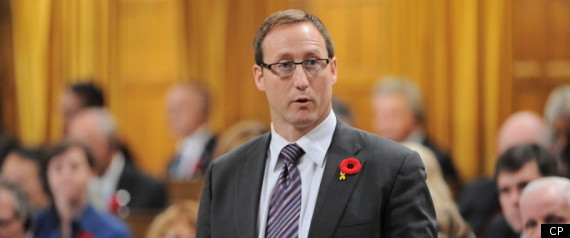KANDAHAR, Afghanistan - Defence Minister Peter MacKay says he plans to ask his Israeli counterpart Ehud Barak about reports that Israel’s leaders have discussed plans to attack Iran’s nuclear sites.
Barak, who along with Israeli Prime Minister Benjamin Netanyahu has taken a tough line on Iran, is due to visit Canada next week.
Speaking to reporters in Kandahar after a day trip to Kabul, MacKay said Saturday that the "dynamics have changed and will continue to change" as tensions escalate between nuclear-armed Israel and Iran.
The International Atomic Energy Agency released a report this week that said Iran has conducted secret experiments that could lead to the development of a nuclear device.
But Iran denies the allegations, claiming the UN nuclear watchdog based its findings on evidence fabricated by the Unites States and its allies.
MacKay said Iran has shown a "blatant disregard" for Israel’s right to exist.
"I think Ehud Barak ... will be able to give us an insight into the thinking of the Israeli government about how they are going to respond to renewed suggestion and evidence that Iran is still aggressively pursuing nuclear capability."
MacKay added that as a strong ally of Israel, Canada is concerned about "many of the alarmist and very threatening words that have been directed toward Israel in the past and in recent days."
While in Kabul, MacKay met with the Afghan defence and interior ministers as well as the commander of the International Security Assistance Force, Gen. John Allen.
During those meetings, MacKay said he discussed last month's attack by a suicide bomber on a convoy in Kabul, which killed Master Cpl. Byron Greff, the first Canadian death in Afghanistan since the combat mission ended in July.
"That attack was a demonstration that the Taliban are trying to have a spectacular effect," MacKay said. "They are trying to continue to cause harm and disruption in the capital, as they are in other parts of the country."
"Our soldiers have to be very vigilant. So they're prepared for that. They know that even though they're in a different role now and they're on base, they do have to move between locations, and we are taking security precautions to protect them."
Although Canada's combat mission has officially ended, around 950 military trainers will remain in and around the capital city of Kabul through 2014 as part of NATO's training mission.
Smaller contingents of Canadian trainers have also been deployed to the cities of Mazar-i-Sharif in the north and Herat in the west near the border with Iran.
Origin
Source: Huff
Barak, who along with Israeli Prime Minister Benjamin Netanyahu has taken a tough line on Iran, is due to visit Canada next week.
Speaking to reporters in Kandahar after a day trip to Kabul, MacKay said Saturday that the "dynamics have changed and will continue to change" as tensions escalate between nuclear-armed Israel and Iran.
The International Atomic Energy Agency released a report this week that said Iran has conducted secret experiments that could lead to the development of a nuclear device.
But Iran denies the allegations, claiming the UN nuclear watchdog based its findings on evidence fabricated by the Unites States and its allies.
MacKay said Iran has shown a "blatant disregard" for Israel’s right to exist.
"I think Ehud Barak ... will be able to give us an insight into the thinking of the Israeli government about how they are going to respond to renewed suggestion and evidence that Iran is still aggressively pursuing nuclear capability."
MacKay added that as a strong ally of Israel, Canada is concerned about "many of the alarmist and very threatening words that have been directed toward Israel in the past and in recent days."
While in Kabul, MacKay met with the Afghan defence and interior ministers as well as the commander of the International Security Assistance Force, Gen. John Allen.
During those meetings, MacKay said he discussed last month's attack by a suicide bomber on a convoy in Kabul, which killed Master Cpl. Byron Greff, the first Canadian death in Afghanistan since the combat mission ended in July.
"That attack was a demonstration that the Taliban are trying to have a spectacular effect," MacKay said. "They are trying to continue to cause harm and disruption in the capital, as they are in other parts of the country."
"Our soldiers have to be very vigilant. So they're prepared for that. They know that even though they're in a different role now and they're on base, they do have to move between locations, and we are taking security precautions to protect them."
Although Canada's combat mission has officially ended, around 950 military trainers will remain in and around the capital city of Kabul through 2014 as part of NATO's training mission.
Smaller contingents of Canadian trainers have also been deployed to the cities of Mazar-i-Sharif in the north and Herat in the west near the border with Iran.
Origin
Source: Huff

No comments:
Post a Comment